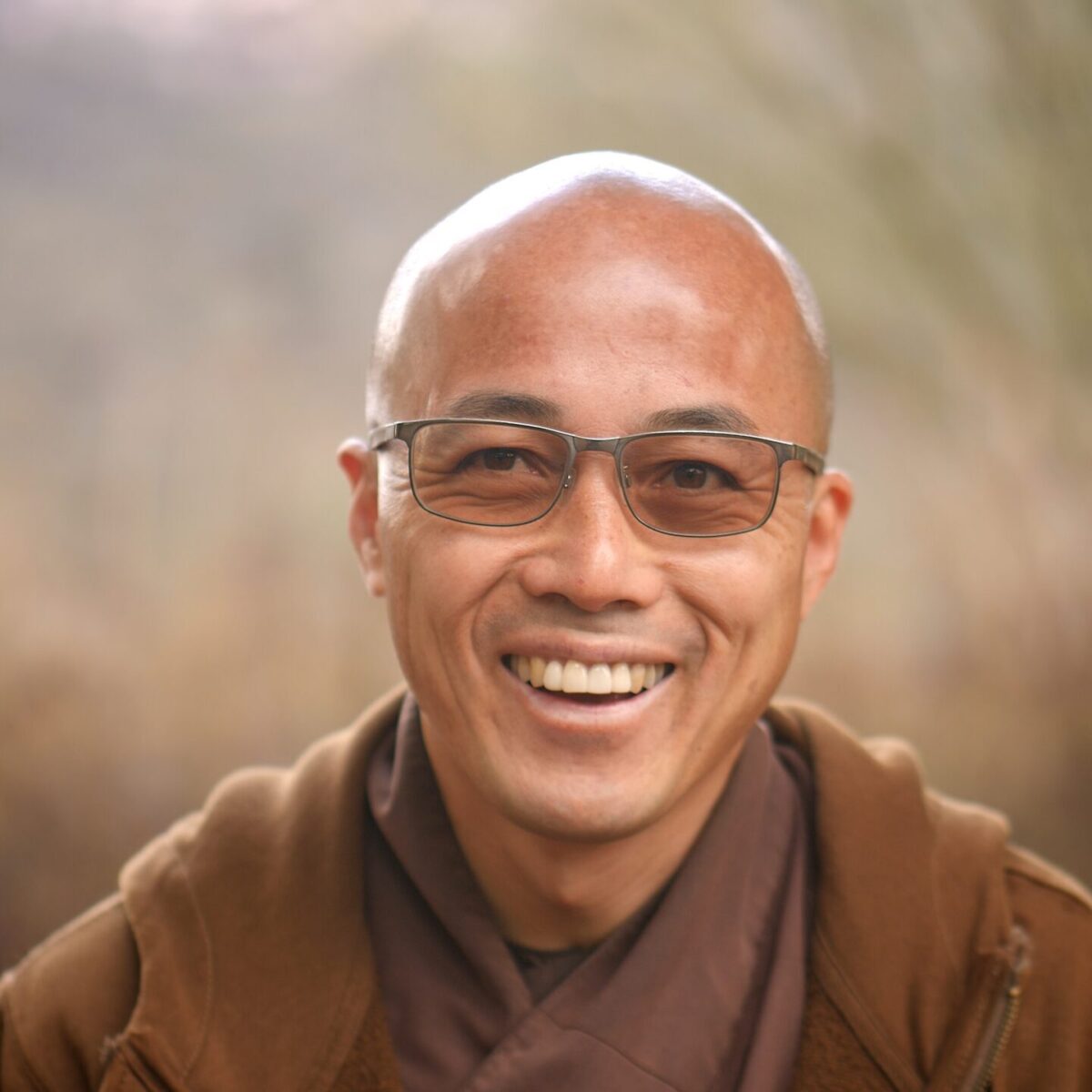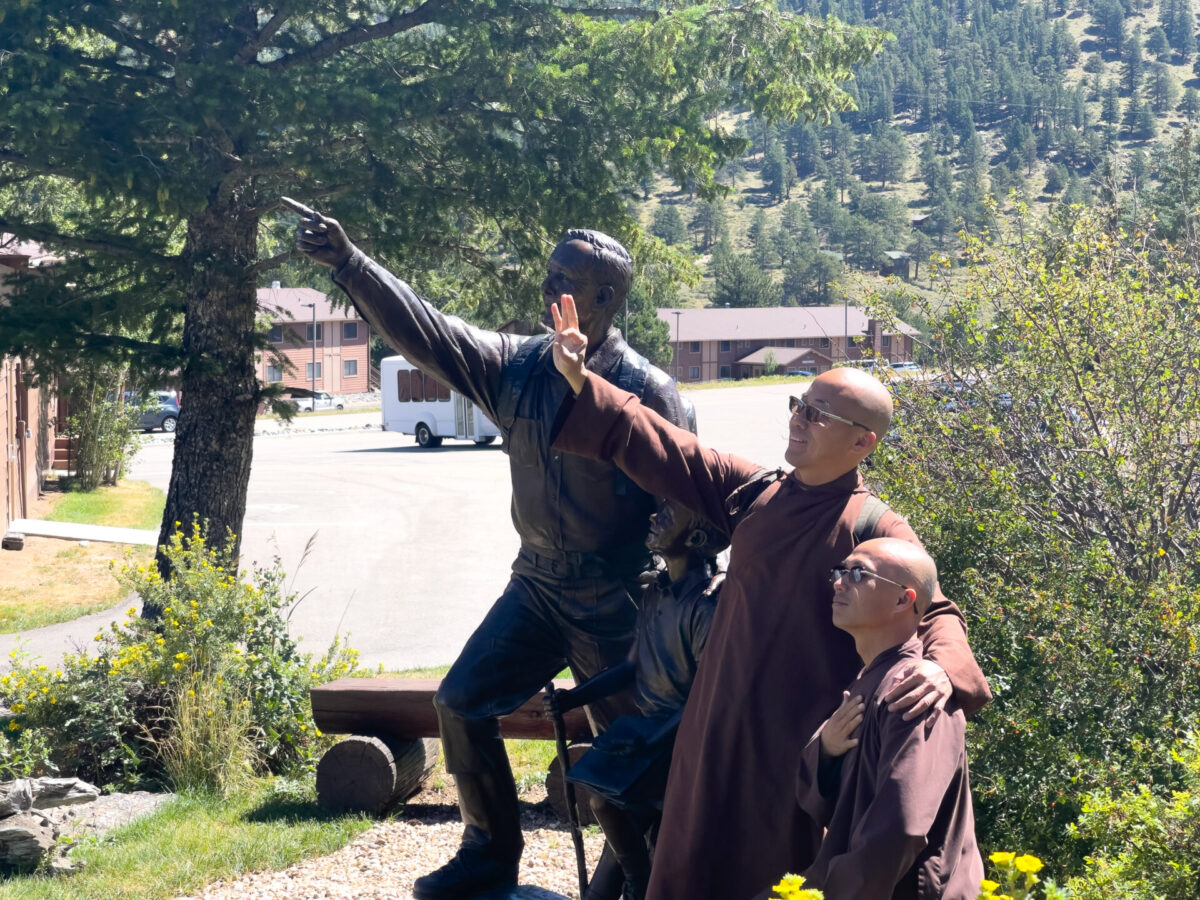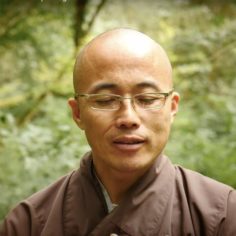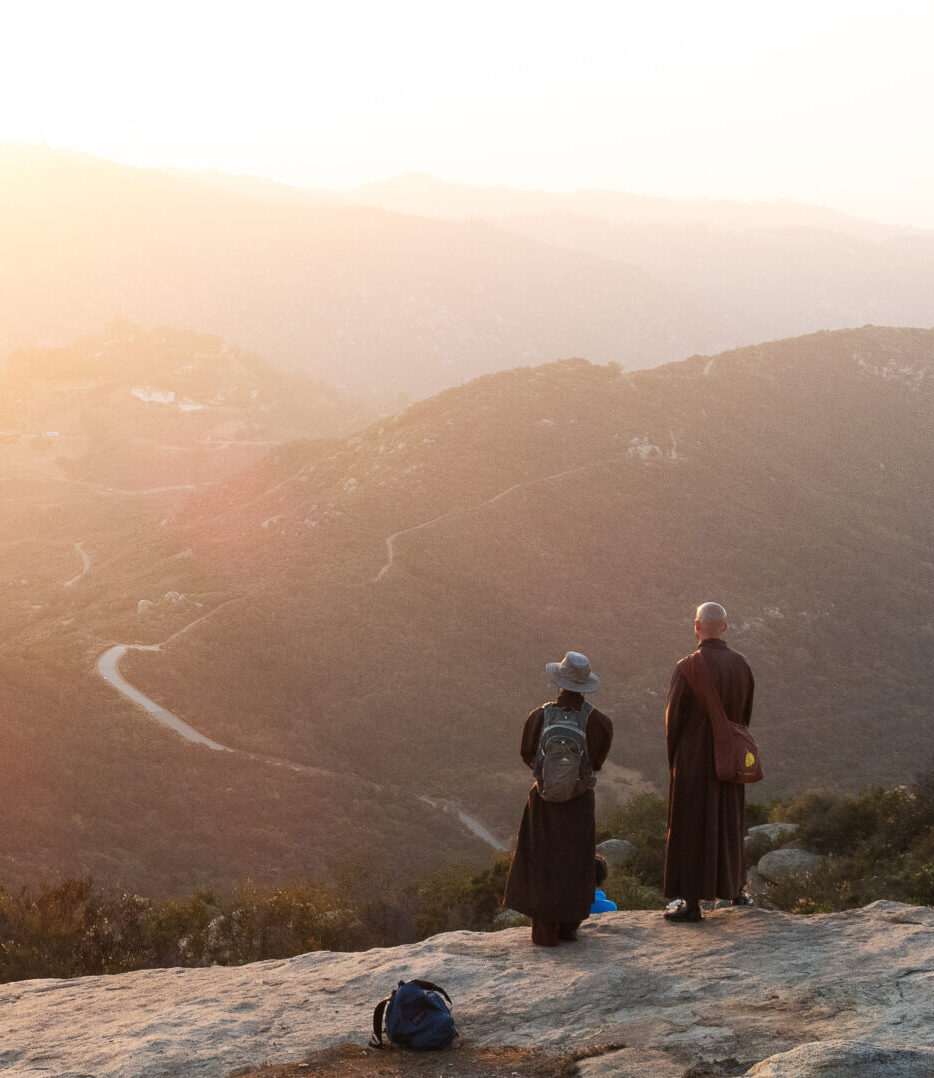By Brother Pháp Dung on
Brother Pháp Dung teaches us to cultivate our good seeds, community, and freedom.

Being the farmer
Our mind has evolved many levels of consciousness; we can imagine, fantasize, and do things with our mind. The secret is right here: the cultivation of mindfulness. Our teacher said mindfulness is like the farmer who cultivates the land and is very discriminative about what to plant and how to take care of the land.
By Brother Pháp Dung on
Brother Pháp Dung teaches us to cultivate our good seeds, community, and freedom.

Being the farmer
Our mind has evolved many levels of consciousness; we can imagine, fantasize, and do things with our mind. The secret is right here: the cultivation of mindfulness. Our teacher said mindfulness is like the farmer who cultivates the land and is very discriminative about what to plant and how to take care of the land. We have fruit that is more wholesome, more healthy, and more conducive to well-being and then plants and fruits that cause suffering and ill-being. We want to cultivate healthy things. Those unhealthy things can remain dormant, and more healthy things can arise from our store consciousness into our lives, into our mind consciousness.
Suffering and healing from suffering are related to two things: notions and habits. We suffer because we have ideas and won’t let them go—ideas about our father, our mother, about ourselves. And it’s hard to let go. We call those internal knots; they can be very hard to untie. The knots are the things we hang on to, and that clinging causes a lot of suffering.
We also have habits, and these are more behavioral. Some habits are helpful and some are not. For example, many people struggle with sleep, because thoughts and worries come up after midnight. This restlessness has biological roots; we’re meant to survive. An animal in the jungle is alert for danger. We are alert for danger in our society, our families, our workplace. This watchful habit formed during our childhood, from the ways our parents, siblings, relatives, and schoolmates treated us. So a lot of these habits were triggered as we were growing up as a young person.
These events fortified seeds in our store consciousness. So, some of us are more fearful, some of us are more anxious. Perhaps we worry we won’t have enough food. I have that. When I was growing up in Vietnam, my family had to hide our food. Back then, if your family was discovered to have food, then people came and harassed you. They made you pay the government. So our family always hid food. I remember going shopping and hiding a chicken under the vegetables. We had to eat the chicken in the back, not letting people know we had enough food. I remember later, just practicing with that—purposely being last in the meal line to help me deal with my anxiety of maybe not getting enough.
Some seeds transmitted to us are helpful and some are not so helpful. Begin to identify the quality of seeds now. As a practitioner you’re a scientist, you’re a researcher. You still have suffering, but you’re going to look into it. You’re not just a victim of your suffering anymore. That is what Thầy gave me. I began to really look at all my luggage, my stuff; take it out, open it, have time for it. You’ve got to make time for it. Now is a good time to have a spiritual dimension. Having a spiritual dimension does not mean you’re Buddhist or an incense-lighting person; it means you’re looking deeply at the nature of things—in yourself, in your parents, in your society.
When you see wholesome things arise in your mind, then you are the farmer. Remember the farmer? You have good habits, good ideas that are helpful. Identify those. Make a list. You have good habits—you exercise, you run. And you have thoughts, notions—you’re kind, you’re compassionate, you take care of your friend, you take care of your mom. You want to continue to cultivate these positive things. You keep those. You love to fold your clothes. This morning I was folding my clothes: oh the joy! No phone, just folding clothes. Folding clothes is my joy. Don’t underestimate the little things! I love making my bed when I wake up; it’s such a joy. These things nourish your little kindness, a little appreciation for your bed. Keep doing those things that nourish your kindness in mindfulness. If you lose your track, bring your awareness back. If you haven’t been taking care of things that are good about you, try to bring them back up. Like the farmer, cultivate fruits that nourish your life. We all have habits that are not so helpful; we have ideas about ourselves—the way we look, the way we behave, the way we are. These ideas may not be helpful. Look into that, but not just to repress it.

The power of meditation
In meditation, first we stop, like we’re learning. You slow everything down and you’re just aware. So awareness is a kind of stopping. Stopping means you are present, you recognize what is. Is this helpful? Is this skillful? You can help better the world if you look at it.
So you’re not judging, and you’re not jumping to react. Of course you’ll do that once in a while because of your habit, and then you do Beginning Anew. You learn, right? You stop, you recognize, you calm, and then you hold. So when uncomfortable feelings arise, we can calm them.
I first experienced this when I felt anger toward my father. I heard his voice and became very angry, but I had committed to sitting until the incense finished burning. It was a pivotal moment for me—for the first time, I witnessed the anger in me subside. I felt grateful I hadn’t gotten up and slammed the door to let my dad know I didn’t like him. For the first time, I didn’t flash back at my dad. It may sound silly, but for me it was everything. That was the beginning of looking at myself. I found if I stayed with anger a while, it went away.
When you have a strong feeling, please change your environment. Go outside, walk. If you are caught sitting like I was, just sit and breathe. But sometimes now, when a negative seed is overwhelming me, I go for a walk or go for a hike. I go outdoors and I water all the other, positive seeds. Remember, a feeling is just a feeling; it will not last. Look into it. The practice is not to repress our notions and feelings. But when your mind is calm, it’s clear. When you are not swept up by the emotion, you’ll see more clearly. So you don’t repress a strong emotion. You hold it and look deeply into it. And understanding arises; that is the power of meditation.
Many of you have a lot of insights. You don’t have to go online, to a book, to a therapist. You have the insight. You have it. It is just a matter of making time, calming yourself, being in a good environment, and having the right schedule for yourself so it’s all conducive to understanding and insight. When a negative emotion, a negative thought comes up, we will learn ways to bring it down, take care of it. Some will take longer than others.
Caring for strong emotions
Recently in Japan, I was overwhelmed by an emotion around behaving properly in public.
Their cultural behavior is so considerate that you have to be considerate, too. And I blew up at my brother, because I would do something—I’m just California, you know—and he kept apologizing to the other Japanese for my behavior. I was like, “You don’t need to do that, man.” I got really upset. So even after practicing over twenty years, I still have that energy: “Arrrrg! Don’t tell me what to do!” But then afterward, I said, “Brother, you know where that came from, right?” “Yeah.” We hugged each other and, dude, it’s done! Nothing personal, it was just that a seed was touched. I kept following my breath, and I recognized this energy in me. When this energy came up, I immediately took care of it. I began anew and I looked into it. I shared with the brothers that the environment was intense for me—being in the subway, no one is talking to you, it’s completely silent and then everybody’s looking at everybody. It was very hard for me, but I began to adapt, to reframe my notions, my ideas. I was bringing American culture to another culture, trying to say, “You should be more like Americans,” which is not appropriate.
Anything that confronts you, that challenges you, you do this: calm it down, look into it. This is the power of mindfulness. Mindfulness is not just being present in joy. But when you’re calm, you’re clear-minded, you’re fresh, it is a good moment to look at your suffering, your notions about who you are, your identity, and so on. In that moment, your mind is very clear and nonjudgmental, not caught in a notion.

True love, freedom, and community
Many experiences woke me up to see that the way our mind works is very important. What we call a cultivated mind in Buddhism can be a lot of benefit; an uncultivated mind can create a lot of suffering, for ourselves and for others. This practice helps us unravel a lot of our notions of happiness. Look at powerful people, look at wealth, and see the toxicity of wealth and power and what that does to a country, a group, and an individual. Use meditation to look at it. All the wealthy, powerful people were falling like wilted fruit during the #MeToo movement. They were at the pinnacle of their fame and power, and the next week, bloop! Because power and fame and money come with exploitation, sex, and perversion.
So this is something we have to look at in terms of our lives and what we do to help better the world. And of course love: to find a relationship not just with human beings but with other elements, like nature, and relationship with the planet. These are some things I hope that you can continue to cultivate in your lives.
And of course the last is my favorite: freedom. That is related to letting go. We have a lot of ideas that we’re holding on to, whether resentment or a kind of knot. In Buddhism, freedom is not political freedom or freedom to do whatever I want, but freedom in Buddhism is to be free from our notions and habits. We need courage to recognize that, because it’s kind of hard to really let go. By cultivating mindfulness energy, you have more strength, more courage to confront some of the things about yourself or others.
Please help us create more community, so we can support each other and can touch all these seeds without fear. We are very fortunate to have this place [Deer Park Monastery], and this place is for you; this is your home. If you ever feel like your battery is low or you’re overloaded, your luggage is too full, please do not hesitate to come here immediately and take refuge in nature, just being here. Please find community so that you can continue to help each other.
Thank you for being open and helping our world, helping by helping yourself as well. Some of us engage through some social action. That’s great, but some of us can help more by being a better person, less disgruntled. There are many ways to contribute, so we don’t all have to become social/racial/environmental activists. We can be one less disgruntled person on the planet and slowly gather many others to do the same. This is a way, our model of influencing the world and affecting change. Thank you.
This is an excerpt from “Opening the Joyful Path,” a Dharma talk given by Brother Pháp Dung on April 8, 2024 at Deer Park Monastery during the Wake Up retreat. It has been edited for clarity. The full Dharma talk is available on the Deer Park Monastery YouTube channel.
Photos courtesy of Deer Park monastics.


